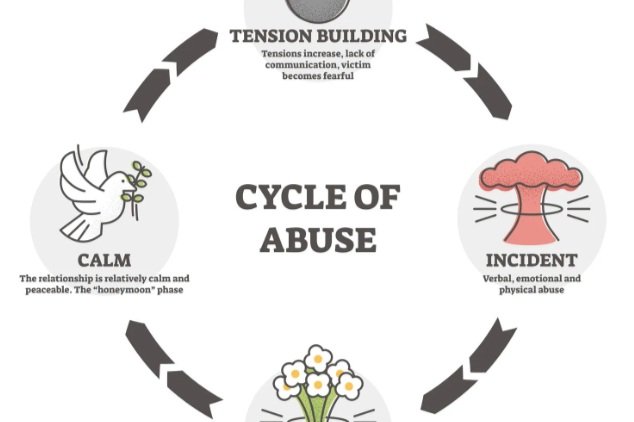Blog

Recognizing the Self-Involved Parent
Perhaps you’ve known that your relationship with your parent hasn’t felt right; that you had a good childhood but something is missing. You may have felt that love and affection from your parent needs to be earned, or that your parent lives vicariously through you and does not see you as your own person.

Mental Health Benefits of Spirituality & Exploring Your Own
Spirituality of any kind is deeply personal and can play an important role in our lives if we want it to. It’s no surprise, then, that research in the field of psychology has begun examining what, if any, benefits holding and practicing spiritual beliefs may have on one’s mental health.

Exploring Joyful Movement
When we live with a diet mentality, exercise can feel like a punishment, a chore, or something we need to do to compensate for a choice we feel shame around. Joyful movement is an approach to physical activity that centers around pleasure rather than shame, and can change the way we view and feel in our bodies.

Seasonal Affective Disorder, COVID-19, and the Holidays: Navigating the Triple Threat of Depression this Winter
For some, the winter season brings with it a picture of cozying up in a warm blanket by candlelight, hot beverage in hand and holiday music playing in the background. But for many, the winter brings less comforting thoughts: What will the holidays be like this year? Will I be able to see loved ones? Will my depression come back? If you’re asking yourself these questions, you’re not alone.

The Four Fs of Complex Trauma: Recognizing and Healing our Survival Strategies
Many of us are familiar with the term “fight or flight,” a classic model for understanding how individuals cope differently to actual or perceived threats. Over time, however, this black-and-white model has been expanded to give space to additional, more nuanced responses to trauma.

What is Trauma Bonding and What Makes It So Difficult to Break Free?
We enter into relationships, whether romantic, professional, familial, or friendships, with an expectation of mutual respect and care. When we remain in relationships despite being abused or mistreated, however, it may mean we need to take a deeper look at why we are continually drawn to the person causing us pain and what makes it so hard to leave.

Understanding Intimate Partner Violence Part II: Disrupting the Cycle of Abuse
Now that we’re able to recognize the signs of abuse in a relationship, a question that often comes up is, “Why would someone stay with an abusive person?” One piece of tackling this question involves understanding that abuse is cyclical. The abuser is not always violent or abusive, nor is the abuse being inflicted at seemingly random times. Dr. Lenore Walker was one of the first psychologists to identify IPV as a cycle that reinforces a false sense of love and wrongly convinces the victim that if only they were different, the abuse could be avoided.

Understanding Intimate Partner Violence Part I: Recognizing Signs of Abuse in Relationships
Domestic violence, a term commonly used to describe abuse in relationships, is abuse/violence perpetrated against a partner, child, elderly relative, or any other member of a household or family. Here, I’ll be discussing intimate partner violence (IPV), a type of domestic violence perpetrated by a current or past spouse or partner. A person does not have to be married or living with their partner to experience abuse or be impacted by it.

Resolving to be Kind to Yourself: Exercises in Self-Compassion for the New Year
It’s that time again when we mark the passing of another year and reflect on changes we hope to make for the future. While the act of recognizing areas of growth and setting goals to make positive change can help us move towards more intentional living, the cultural pressure for rapid change beginning January 1st can give our inner critic permission to run amok.

Practicing Forest Therapy (Even in a city... even in winter.)
Referred to in Japan as shinrin-yoku (forest bathing) or in Scandinavian cultures as friluftsliv (open-air life), forest therapy is simply the practice of being in nature for the purpose of enhancing one’s happiness, wellness, and health. Forest therapy has been seen to yield such benefits as a boosted immune system, a calmer mind, increased happiness and energy, among so much more. But how in the world is a New Yorker, as we creep into the darker, colder winter months, supposed to practice forest therapy?

“Should I see a therapist?”: 6 Signs That It May Be Time to Give Therapy a Try
We’re often surrounded by messaging, conscious or unconscious, that the best thing to do when the going gets tough is to take care of it ourselves, “be productive,” and our mental health will follow suit. So what happens when that new meditation app, the yoga membership you signed up for, or talking it out with a friend just isn’t cutting it anymore?